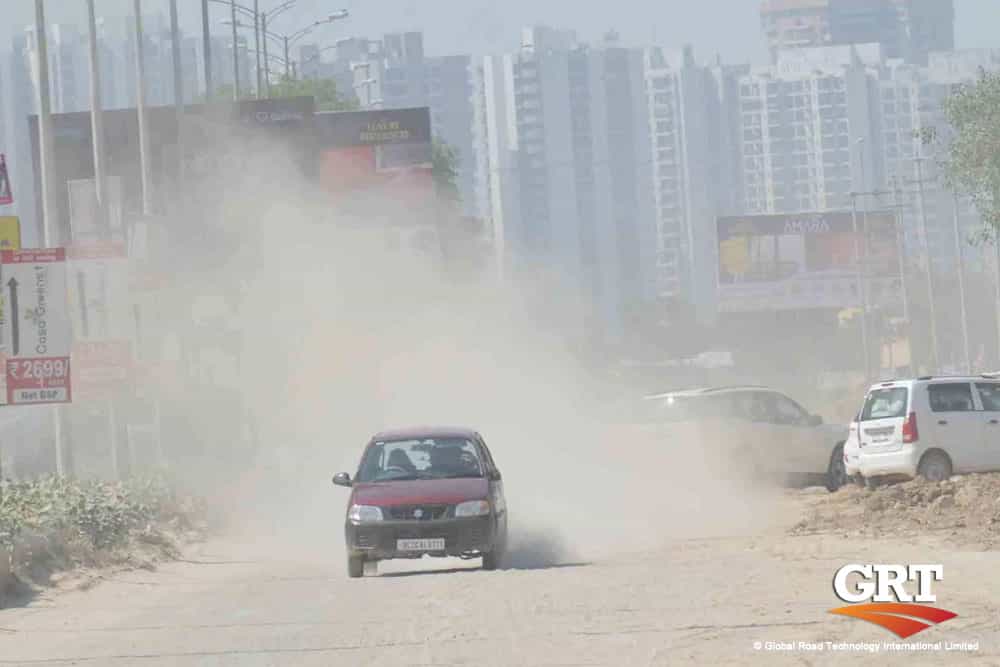
With regards to the condition of our roads, earlier this year, IIT-Kanpur found that 56% of particles below 10 microns was caused by road dust, 10% by industrial points, 10% by concrete batching and only 9% by vehicles. In the case of PM2.5, the contributions were 38% by road dust, 20% by vehicles, 12% by domestic fuel and 11% by industry.
Dust pollution is the main air contaminant and environmental hazard, having extensive health, safety and environmental consequences, and is posing significant risks to everyone and everything.
Despite these consequences, it is concerning how little attention is paid to dust management – although recent dust problems have created sharp focus on the issue now.
Airborne dust particles can pass through the nasal passage and travel to the deepest regions of the lungs. When anyone breathe in this dust over a prolonged period of time, it can cause a number of respiratory conditions, including breathing difficulties, respiratory pain, diminished lung function and even cancer. However, because these conditions often take several years to develop, both employers and regulators don’t take them as seriously as workplace injuries, until now.
Recently we have seen a real change in Government’s position on the dust problem, especially in Metro’s such as Delhi – where the problem is severe.
If you see there are other drawback’s including wastage of water. Having dust being identified as one of the major contributors to air pollution in Delhi, it is recently on 08th November 2016 the government ordered approximately 25 lakhs little of water sprayed on road to kerb and central verges to settle the dust.
In addition to impacting the health of workers, airborne dust can significantly reduce visibility on the road, increasing the risk of vehicle accidents. There are accidents on haulage roads every day in India as a direct result of dust.
Global Road Technology, an Australian infrastructure company now based in Pune that specialises in technology for the creation of stabilised roads and environmentally friendly polymer dust binding technologies is calling on Delhi companies to be more proactive about dust management on work sites.
Managing dust could be challenging for the mining, power, construction, milling and supporting industries, as dust is inherent to many of industry’s essential operations and can be generated from a variety of sources. Global Road Technology specialises in eliminating fugitive dust by applying a patented polymer solution to the surface of roads and paths, that bind soil particles and fugitive dust.
This technology eliminates dust immediately, saving client’s significant money from their construction and maintenance budgets. It is easy to apply, using a water tanker and spray hose. GRT have been working in communities across the world to deliver this innovative technology, including undertaking a number of projects in Australia, Asia and the Middle East.
Are environmental regulations, health and safety concerns or potential profit loss a concern right now?
Contact Us Now